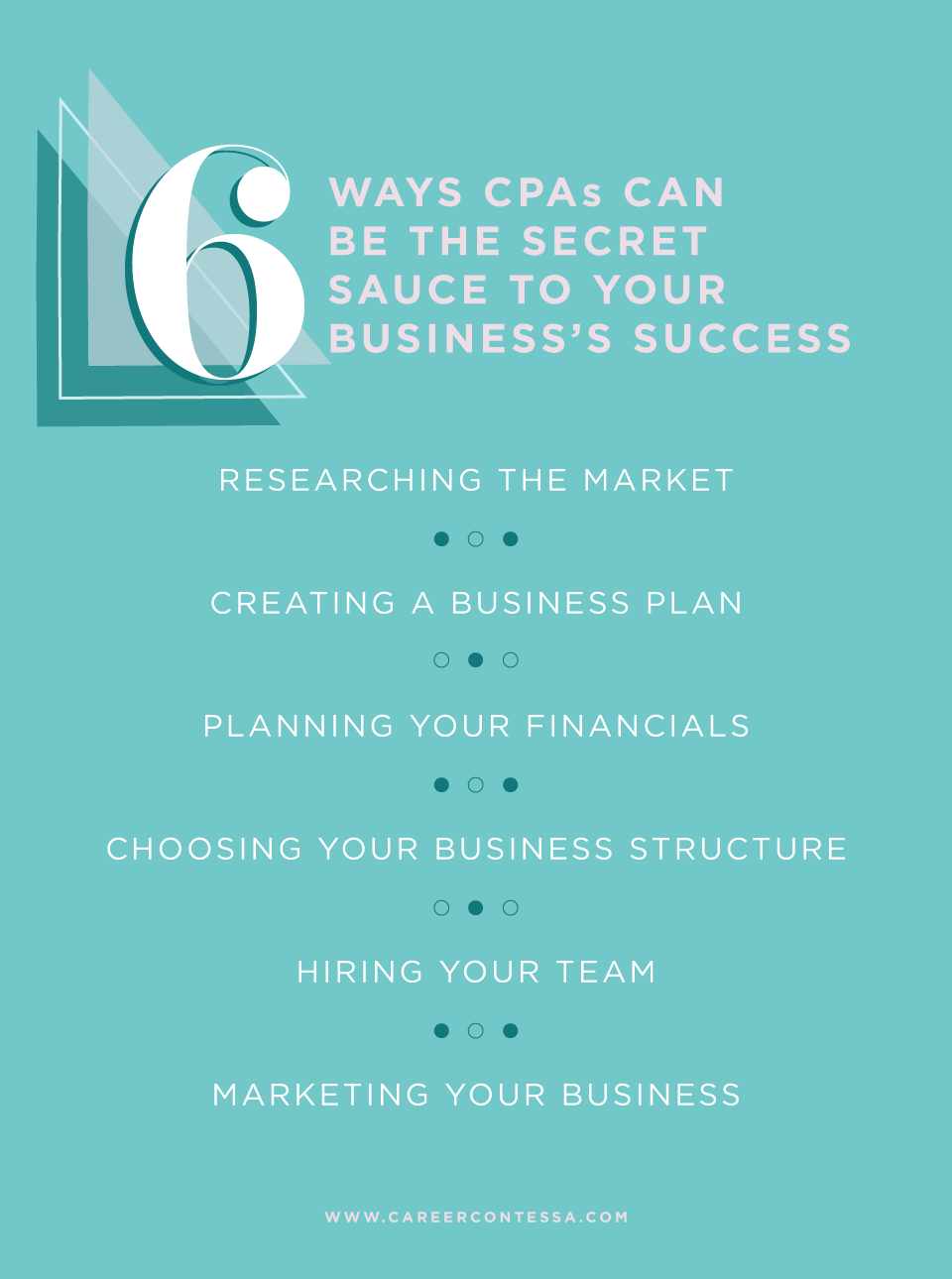Starting a business is a huge endeavor for any entrepreneur.
The secret is this: at almost every point of putting your business together, a
Certified Public Accountant (CPA) is going to be your biggest asset.
Rather than telling you, we will show you why—step-by-step. Here are 6 ways a CPA can help guide your business.
1. Researching Your Market
So, you think you’ve got the stuff to enter the entrepreneur world? Awesome news! You’re already armed with a fool-proof idea and a loose business plan, but before we get into the nitty-gritty, let’s survey the land around us.
A CPA can help you research the market and assess the demand for your goods or services. They’ll help you think through questions like: What need does your business serve? Is there competition currently serving your intended market? If so, what sets you apart?
With a CPA’s help, you can determine a pricing strategy that’s fit for your market. By involving a CPA in this early strategy stage, you can help avoid business landmines that a financially-minded CPA could spot instantly.
2. Creating a Business Plan
The business plan is the blueprint that will guide your business from inception to a stage of growth.
Business plans are incredibly important, especially if you intend to gain financial support from banks or investors. Writing a detailed business plan, just like preliminary market research, safeguards against future problems by assessing them before they have the chance to occur.
When creating your business plan, you’ll likely have the vision to create the executive summary, the company description, and some of the marketing plans.
A CPA can help you bring those parts together to create a comprehensive business plan. Remember the marketing analysis you worked to create? This will be useful to add to your business plan. Additionally, a CPA can help you determine the organization and management of your business, the intended spend on marketing and sales, the amount of funding to seek out (and from where) and the financial projections for the first year.
Speaking of financials, a CPA will have a 36,000-foot view of what ideal financials should look like.
Aside from a
CPA’s detailed knowledge of taxes, gross margins, and interest, they’ll also have an eye on assets, liabilities, and other less obvious expenses. By planning your financials with a CPA, you’re unlocking a wealth of knowledge on complicated tax issues, income projections, expense budgets, and cash flow plans.
Consider having a CPA’s expertise on hand when forecasting your financials. It will be the best investment you ever made.
4. Choosing A Business Structure
A CPA can also help you determine the best tax classification for your business. Is your business going to be a sole proprietorship, a partnership, a limited liability company (LLC) or corporation?
The business structure will impact many factors—from your business’s name to your tax responsibilities. By enlisting the help of a CPA, you can examine the pros and cons of each business structure—and choose the structure that best benefits you in the long run.
5. Hiring Your Team
Listen up, because this is a really important one.
Hiring the right employees at the right time is going to be crucial to the success of your business. For example, when a startup selling X product receives an influx of funding, the CEO might decide to hire three or four salespeople. The reasoning behind this decision seems sound, right? Salespeople sell products. However, when you hire four salespeople and they don’t make quotas, you are bleeding money.
In this situation, a CPA can act as your ad-hoc HR representative. After looking at your financials, business plan, and your cash flow predictions, a CPA can help you decide where and when to make hires. A CPA can also help you to determine what will make this new hire successful—whether it’s meeting a sales quota, producing a certain project, or helping to land new business partnerships.
6. Marketing Your Business
Once you’ve completed all the work towards getting your business set up, it’s time for the world to see.
Creating a marketing plan is crucial to attracting, nurturing, and selling to new and potential clients. Work with your CPA to determine a reasonable marketing budget, the intended returns from it, and budgets for any freelance or full-time help you might need to implement the plan.
The good news? If you’ve involved your CPA from the beginning, they’ll already have a pretty deep understanding of your market and customer. This comprehensive knowledge will serve you well in creating a marketing plan and a marketing budget.
In Conclusion
A CPA brings an unparalleled level of knowledge, experience, and education that’s invaluable to small business owners.
With deep expertise in tax and financial planning, a CPA is a great asset for any budding business. If you are looking to enlist the help of a CPA for your business or personal finances, use the
Find-a-CPA map.
Your business (and cash flow) will thank you.










